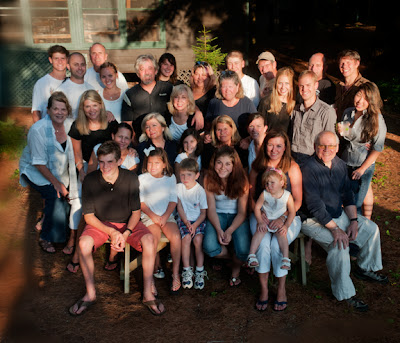Labor Day
Labor Day is the federal holiday that celebrates the economic and social contributions of workers. That’s all workers, as in every employee who gets up and works. Like you. So, how are you going to celebrate?
In the beginning, people got the day off as a way of thanking workers for working – back then there weren’t a lot of other days off. Most people today have a 3-day weekend – they celebrate work by not working; most celebrate by doing stuff with family and friends – but not the people they work with. And come next Tuesday, everyone will return to work and the celebration will be over; but not the work.
As you get ready for this holiday weekend, look around at the people you work with and thank them for all they do, and the relationships and memories you share. Then take a moment to remember those who are not working, and the sacrifices they’ve made these past few years; take time this weekend to reach out to some of them and let them know you’re thinking about them too.
And then give thanks for the job you have and the work you do. Do it every day. That’s a better way to honor labor and celebrate Labor Day.
My message this week is about the people we work with:
 “Only by binding together as a single force will we remain strong and unconquerable.”
“Only by binding together as a single force will we remain strong and unconquerable.”
In the beginning, people got the day off as a way of thanking workers for working – back then there weren’t a lot of other days off. Most people today have a 3-day weekend – they celebrate work by not working; most celebrate by doing stuff with family and friends – but not the people they work with. And come next Tuesday, everyone will return to work and the celebration will be over; but not the work.
As you get ready for this holiday weekend, look around at the people you work with and thank them for all they do, and the relationships and memories you share. Then take a moment to remember those who are not working, and the sacrifices they’ve made these past few years; take time this weekend to reach out to some of them and let them know you’re thinking about them too.
And then give thanks for the job you have and the work you do. Do it every day. That’s a better way to honor labor and celebrate Labor Day.
My message this week is about the people we work with:
Chris Bradford
Chris Bradford is an author, professional musician and black belt martial artist, best known for his children's fictional series, Young Samurai.
Life is full of opportunities to work - either alone, or with others. How you approach these opportunities says a lot about who you are and how you see things. Many would rather ‘go it alone’, feeling that self-reliance is the key to success. There are certainly more than enough examples of people working alone – on their computers, in their own zone – and banging out the work that they know they can do and trust. But the concept of “two heads are better than one” is based on our ability to leverage the skills and knowledge and abilities of many to then create a result that none on their own could achieve. And this is not just true in heavy lifting, but also in complex thinking, tight production schedules, doing more with less, and being able to push all the participants farther than they each might individually expect. Whether in sports, work, war, or family, binding together as a single force can, and usually does, make us strong and unconquerable. Practice this effectively today and you’ll be strong and unconquerable too!
Have a great Labor Day!









